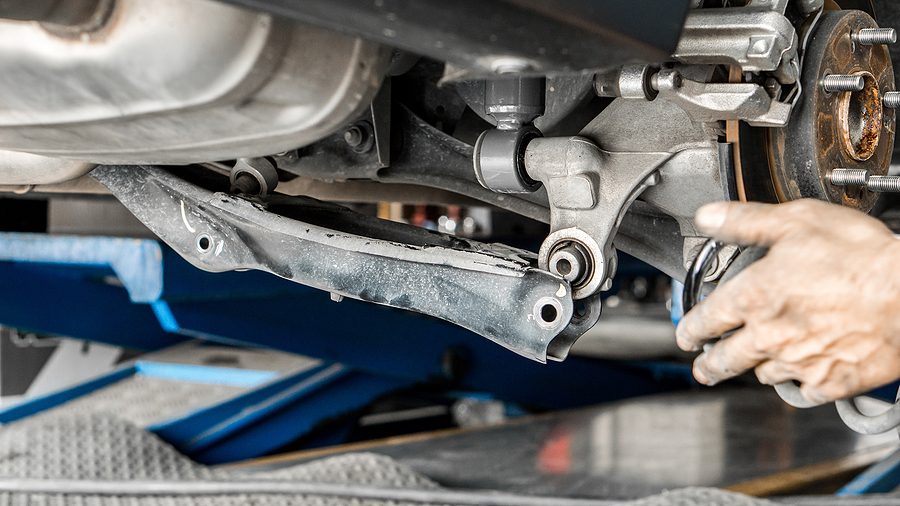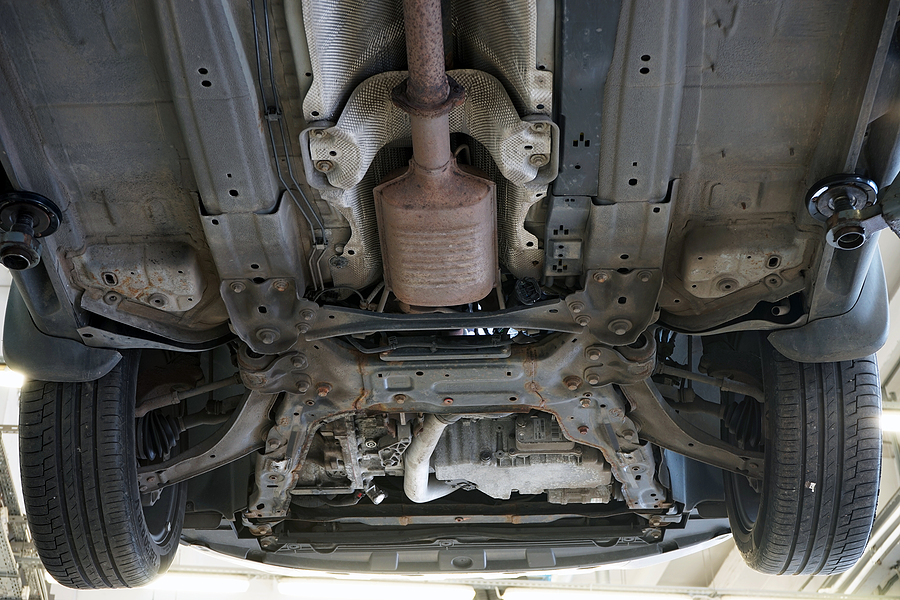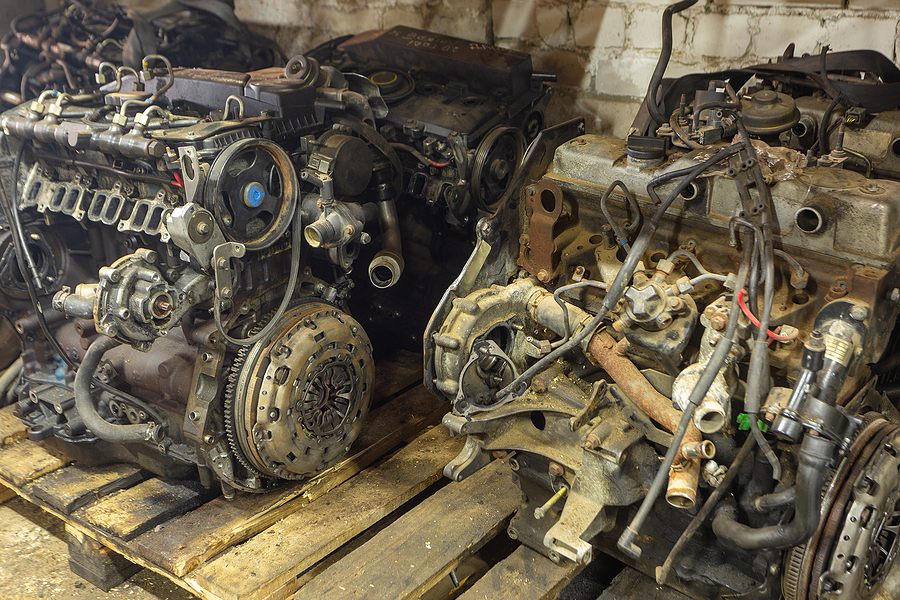A smooth, comfortable ride is something most drivers take for granted. We expect our cars to glide over minor road imperfections and handle turns with stability. This quiet, steady performance is thanks to your vehicle’s suspension system. But when problems arise, they can affect everything from ride comfort to safety.
Recognizing the signs of suspension trouble is the first step toward a solution. A bouncy ride, unusual noises, or uneven tire wear are all indicators that something is amiss. This guide will walk you through the key components of your car’s suspension, common issues you might encounter, and how to diagnose and resolve them, ensuring your vehicle remains safe and reliable on the road.

Understanding Your Suspension System
Your car’s suspension is a complex network of parts working together to keep your tires on the road and absorb the bumps along the way. It is essential for both comfort and control. Understanding its main components can help you identify problems more effectively.
Springs
These are the primary components that absorb bumps and support the vehicle’s weight. They can be coil springs (the most common type), leaf springs (often found on trucks and older cars), or torsion bars. When you drive over a bump, the springs compress to absorb the impact.
Shock Absorbers and Struts
While springs absorb impacts, shock absorbers (or dampers) control the bouncing motion. Without them, your car would continue to bounce long after hitting a bump. A strut is a more complex assembly that combines a shock absorber and a spring into a single structural unit, which is common in many modern front-wheel-drive cars.
Linkages and Bushings
These components connect the various parts of the suspension to the car’s frame and to each other. They include control arms, ball joints, and tie rod ends. Bushings are rubber or polyurethane cushions that absorb vibrations and allow for slight movement, reducing noise and harshness.
Together, these parts work to maximize friction between the tires and the road, providing steering stability and good handling. A well-maintained suspension ensures a smooth, controlled, and safe driving experience.
Common Suspension Problems
Like any other part of your car, suspension components can wear out over time. Here are some of the most common issues you might face.
Worn Shock Absorbers or Struts
Worn shocks or struts are one of the most frequent suspension problems. Because they lose their ability to control the vehicle’s bouncing, you might notice several tell-tale signs:
- A Bouncy Ride: The car feels floaty and continues to bounce after hitting a bump.
- Nose-Diving or Squatting: The front of the car dips excessively when you brake, or the rear squats when you accelerate.
- Uneven Tire Wear: Worn shocks can cause “cupping,” which are scalloped dips around the surface of the tire tread.
- Fluid Leaks: You may see hydraulic fluid leaking from the body of the shock or strut.
Spring Issues
The springs support your car’s weight, so any problem with them can be significant.
- Broken Springs: A broken spring can cause a corner of the car to sag noticeably. You might also hear a loud clunking noise when driving over bumps. This requires immediate attention as it can affect steering and handling.
- Sagging Springs: Over time, springs can weaken and sag, causing the car to sit lower than its normal ride height. This can lead to bottoming out over bumps and premature wear on other suspension parts.
Linkage and Bushing Problems
The various joints and bushings that hold the suspension together can also wear out.
- Worn Ball Joints: These are pivot points that connect the control arms to the steering knuckles. When they wear out, you might hear a clunking or knocking sound from a corner of the car, especially when going over bumps or turning.
- Worn Tie Rod Ends: Tie rods connect your steering system to the wheels. Worn tie rod ends can lead to loose, imprecise steering and uneven tire wear.
- Worn Bushings: The rubber bushings that cushion the suspension can crack and deteriorate. This can cause creaking, rattling, or clunking noises and can affect alignment and handling.
Alignment Issues
Wheel alignment refers to the angles of your wheels relative to the car and the road. While misalignment is often a problem in itself, it can also be a symptom or cause of suspension issues. Poor alignment can lead to uneven tire wear, a crooked steering wheel, and the vehicle pulling to one side. It also puts extra stress on suspension components.
View More of Our Car Care Blogs ⛭
Diagnosing Suspension Problems
Some suspension issues are easy to spot, while others require a closer look. Here’s how you can start diagnosing a potential problem.
The Bounce Test
A simple way to check your shocks and struts is the “bounce test.” Go to each corner of your parked car and push down firmly on the fender several times. When you let go, the car should bounce once or twice and then settle. If it continues to bounce, your shocks or struts are likely worn.
Visual Inspection
Take a look under your car. Check the shocks and struts for any signs of leaking fluid. Look at the springs to see if any are broken or cracked. Examine the rubber bushings for cracks or signs of deterioration. You can also check for play in the ball joints and tie rods by trying to wiggle the wheels, though this is often best left to a professional.
When to See a Professional
While the bounce test and a visual check can give you clues, many suspension problems are best diagnosed by a qualified mechanic. They have the tools and expertise to safely lift the vehicle, inspect all components thoroughly, and accurately identify the source of the problem. If you hear persistent noises, feel a significant change in handling, or notice uneven tire wear, it’s time to book an appointment.
Solutions and Maintenance
Once a problem is diagnosed, the solution usually involves replacing the worn-out part.
Replacing Components
Worn shock absorbers, struts, and broken springs must be replaced. It’s generally recommended to replace them in pairs (both front or both rear) to ensure even performance. The same goes for many linkage components like ball joints.
Regular Alignment
Getting your wheels aligned regularly (about once a year or whenever you get new tires) is crucial. A proper alignment ensures your tires wear evenly and your car handles correctly, which reduces stress on the suspension.
Maintenance Tips
To prolong the life of your suspension, try to avoid potholes and driving aggressively on rough roads. Pay attention to your tire pressure, as properly inflated tires help absorb some of the impact from the road.
Your Next Steps for a Safer Drive
A well-functioning suspension system is not just about comfort; it’s a critical safety feature. It ensures your tires maintain firm contact with the road, providing the traction you need for braking and steering effectively. Ignoring signs of trouble can lead to more extensive damage and compromise your safety.
By understanding the common problems and knowing what to look for, you can address issues early and keep your vehicle in top condition. Regular inspections and timely repairs will ensure a safe, smooth, and enjoyable driving experience for years to come.
If your car has severe suspension damage or other issues that make it too costly to repair, it might be time to consider other options. For vehicles beyond saving, GC’s Junk Cars offers free junk car removal in the Indianapolis area, providing a simple and profitable solution for your end-of-life vehicle. That’s right—we pay cash on the spot for all scrap vehicles, regardless of condition!
Related Post: High-Priced Problems: The Most Expensive Car Repairs Revealed









